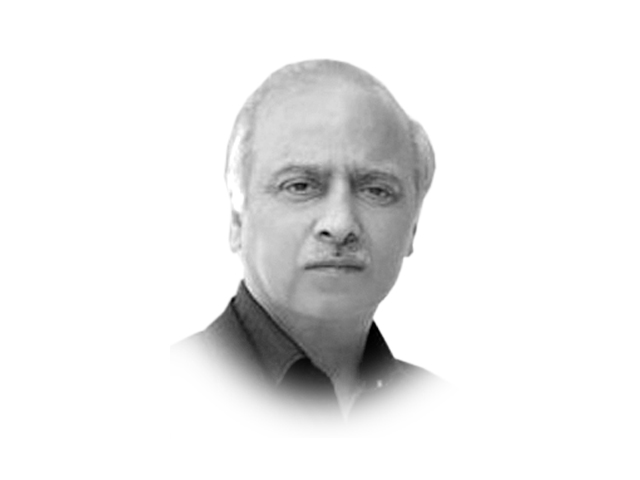
The Lahore carnage is a continuation of the terror and destabilisation campaign. It is nearly impossible to preempt or prevent a terrorist from committing this heinous crime at a time and venue of his choice. But the violent assault by Qadri supporters and its aftermath — theoretically — was not difficult to predict and prevent. It again brings the capacity of state institutions and the will of the leadership into question. There are two big issues arising out of this, and they revolve around adequate preventive action and management of an evolving crisis.
The funeral on 29th February should have been an eye-opener even for the politically blind. The emotionalism of the mourners and the possible fallout was imaginable from the word go. Why, then, allow them to congregate and descend into vandalism of the worst kind? Was it a security lapse, apathy and absence of mob management skills? Some observers interpreted the advance of the mob as “deliberate” to draw them into the remote D-Chowk, cut them off from the cellular networks and wear them down. It is a good postulation but why was the interior minister then fuming a day later and admonishing the entire police administration for allowing the protestors to get close to the Parliament House? Why did the Punjab police allow them to march on to Islamabad despite the knowledge of the militant intent, made evident by the 10 demands that the Tehreek-e-Labaik Ya Rasool (SAW) has tabled for bargaining? This charter literally challenged the entire constitutional edifice of Pakistan; snubbing the endorsement by the Supreme Court of Qadri’s execution, the outfit is demanding recognition of Mumtaz Qadri as a martyr, conversion of his Adiala Jail cell into a national heritage site, and asking for assurances that the blasphemy laws will not be amended, unconditional release of all religious clerics and leaders booked on various charges, including terrorism and murder. Removal of Ahmadis and other non-Muslims from key government posts as well as execution of the blasphemy accused Aasia Bibi, the woman former Punjab Governor Salmaan Taseer was killed for defending, are also part of the demands.
Continued acquiescence by the political elites and soft-peddling for electoral considerations puts the constitutional fundamentals at stake. Will the government — for the sake of “peace “ — barter away some of the cardinal articles of the constitution that guarantee a) equal rights to all citizens (Article 25); b) freedom of faith (Article 19,20, 21:Freedom to profess, practice religion and to manage religious institutions); c) protection of the dignity of man (Article 9 and 14. Security of a person and Inviolability of dignity of a man: No person shall be deprived of life or liberty save in accordance with law) and d) accept the Supreme Court as the final adjudicator (Article 189: decision of the Supreme Court shall be binding on all other courts in Pakistan).
Can we really afford erosion of constitutional values by constantly bending to marchers and protestors? The constitution provides the right to peaceful protest and expression of opinion, but it also places huge responsibility on individuals and institutions to protect all that is part of this document.
Although Premier Nawaz Sharif, in his nationally televised speech late Monday, reiterated his anti-terror resolve, he, like many others, remains confused on the conflation of extremism and terrorism. His government remains short on empowerment of the entire civilian security establishment (because he wants a subservient police). The real manifestation of his commitment to terrorism lies in firm action against all those who break or take the law in their own hands, in the name of faith. Long-term salvation lies in across the board enforcement of ATA-1997 and Pakistan Protection Act 2014 (hard power against terrorists) and clarity on the need to politically fight ideological extremism (soft power). Both the central and provincial governments also remain short on the promise of regulating madaris — most of which continue to churn out tunnel-visioned, ultra-conservative Taliban.
Pakistanis don’t need loft rhetoric and expressions of sympathy or monetary crumbs in the name of compensation. They demand resolute implementation of law and the protection of all that the constitution promises.
Published in The Express Tribune, March 30th, 2016.
Like Opinion & Editorial on Facebook, follow @ETOpEd on Twitter to receive all updates on all our daily pieces.

1722586547-0/Untitled-design-(73)1722586547-0-165x106.webp)


1732326457-0/prime-(1)1732326457-0-165x106.webp)








COMMENTS (1)
Comments are moderated and generally will be posted if they are on-topic and not abusive.
For more information, please see our Comments FAQ